These 11 Arkansas Murder Cases Made Headlines
These gruesome acts took place in the Natural State, and for the most part justice was served. Some would argue, however, that not all of these cases were properly handled or the criminals involved truly got what they truly deserved. Either way, the murders that took place in Arkansas left a mark on the state and made headlines in the news.
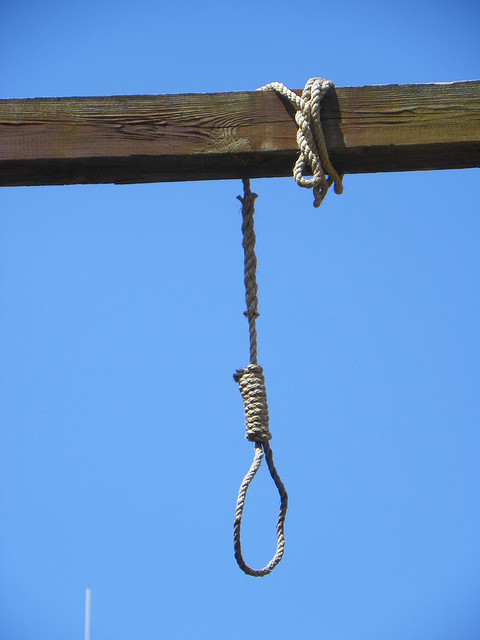
Burnett's teenage daughter Minerva led authorities to find that her parents had planned Selby's murder and her brother John had carried it out. Lavinia and her husband were sentenced to death in October 1845. Their hangings were reportedly well attended. John Burnett was apprehended and hanged a month later in Fayeteville as well.
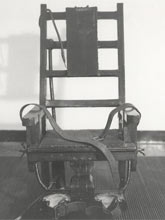
Convicted of murder after a two-day trial in May 1945, Hall was sentenced to death. Escorted to the electric chair on January 4, 1946, he was all smiles, laughing and joking with his guards. "Boys, I'm not afraid," he was reported as saying when guards strapped him in and fastened the electrodes. "I can take it." Noted now for being an obsolete method of execution, death by electrocution is still a legal secondary execution practice in Arkansas.
Advertisement

This serial killer who made a wrong turn into the Natural State found his way back to Illinois and was sentenced consecutively to a total of 500 years in prison in Illinois in 1971.
Advertisement

Two weeks later, the two killers were caught in Portland, Oregon, and were sentenced by the state of Arkansas to die for their crimes The executions were carried out on January 8, 1997 by lethal injection.
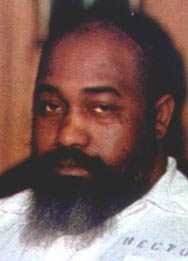
Rector then shot himself in the head in a suicide attempt. The attempt effectively resulted in a lobotomy. Rector survived the surgery and was put on trial, his defense arguing that Rector was intellectually impaired and not competent to stand trial. However, after hearing conflicting testimony, Rector was ruled competent to stand trial. Rector was convicted on both counts and sentenced to death. Despite Rector's mental state, then Arkansas Governor Bill Clinton made a point of returning to Arkansas to oversee Rector's January 24, 1992 execution during the 1992 U.S. Presidential campaign.

Cherry was initially sentenced to life imprisonment, but upon appeal of his conviction, his sentenced was reduced to 30 years. Cherry's estimated release date is January 9, 2020.

On November 11, 2009, Vance was convicted of capital murder, residential burglary, rape, and theft of property. Vance was reportedly a fan of Pressly, and was a frequent viewer of her morning news show. The following day, he was sentenced to life in prison without parole.
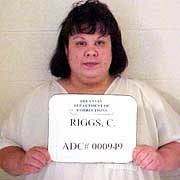
After her children were dead, Riggs unsuccessfully attempted suicide. Riggs' defense said she was suffering from depression and apparently did not want to have her children split up after her envisioned suicide. Riggs requested the death penalty and her wish was fulfilled on April 30, 2000. This date marked the first woman executed in Arkansas since 1845.
Advertisement
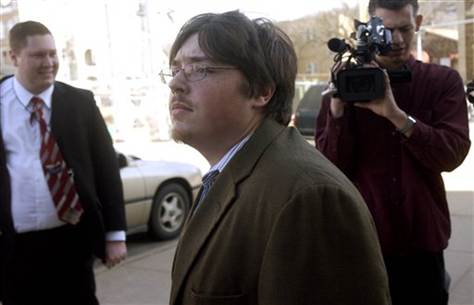
The two youths were among the youngest people ever charged with murder in American history. The Jonesboro prosecutor later stated that were it not for their ages, he would have sought a death sentence for the pair. In August 1998, both boys were sentenced to confinement until they reached the age of 21, which is the maximum sentence available under Arkansas law. Johnson was released on his 21st birthday, August 11, 2005, having spent seven years in prison. Golden was released on May 25, 2007, also his 21st birthday, after spending nine years in prison. Johnson has since faced run-ins with Arkansas law subsequent to his release and is currently serving a four-year federal sentence on weapon and drug charges.

Simmons was charged with 16 counts of murder, found guilty, and sentenced to death. He refused to appeal his death sentence. On June 25, 1990, Simmons died by the method he had chosen, lethal injection. None of his relatives would claim the body, and he was buried in a pauper's grave.
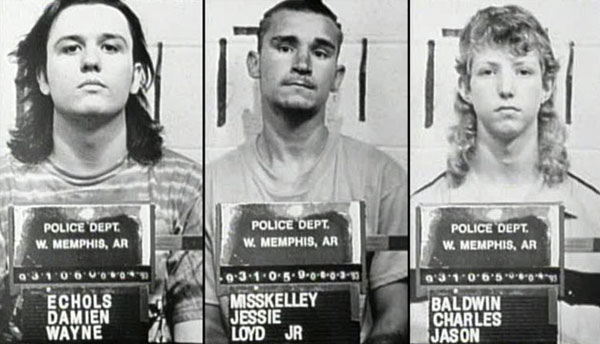
Following a successful decision in 2010 by the Arkansas Supreme Court regarding newly produced DNA evidence, the West Memphis Three negotiated a plea bargain with prosecutors. On August 19, 2011, they entered Alford pleas, which allow them to assert their innocence while acknowledging that prosecutors have enough evidence to convict them. Judge David Laser accepted the pleas and sentenced the three to time served. They were released with ten-year suspended sentences, having served 18 years and 78 days in prison. The decision remains controversial as the families of the three victims are divided in their opinions as to the guilt or innocence of the West Memphis Three.
Whether you agree or disagree with the amount of justice served in the courts’ decisions, there’s no doubt that these terrible murders or even the punishments served by the perpetrators will be erased from the minds of Natural State natives anytime soon.
OnlyInYourState may earn compensation through affiliate links in this article. As an Amazon Associate, we earn from qualifying purchases.




